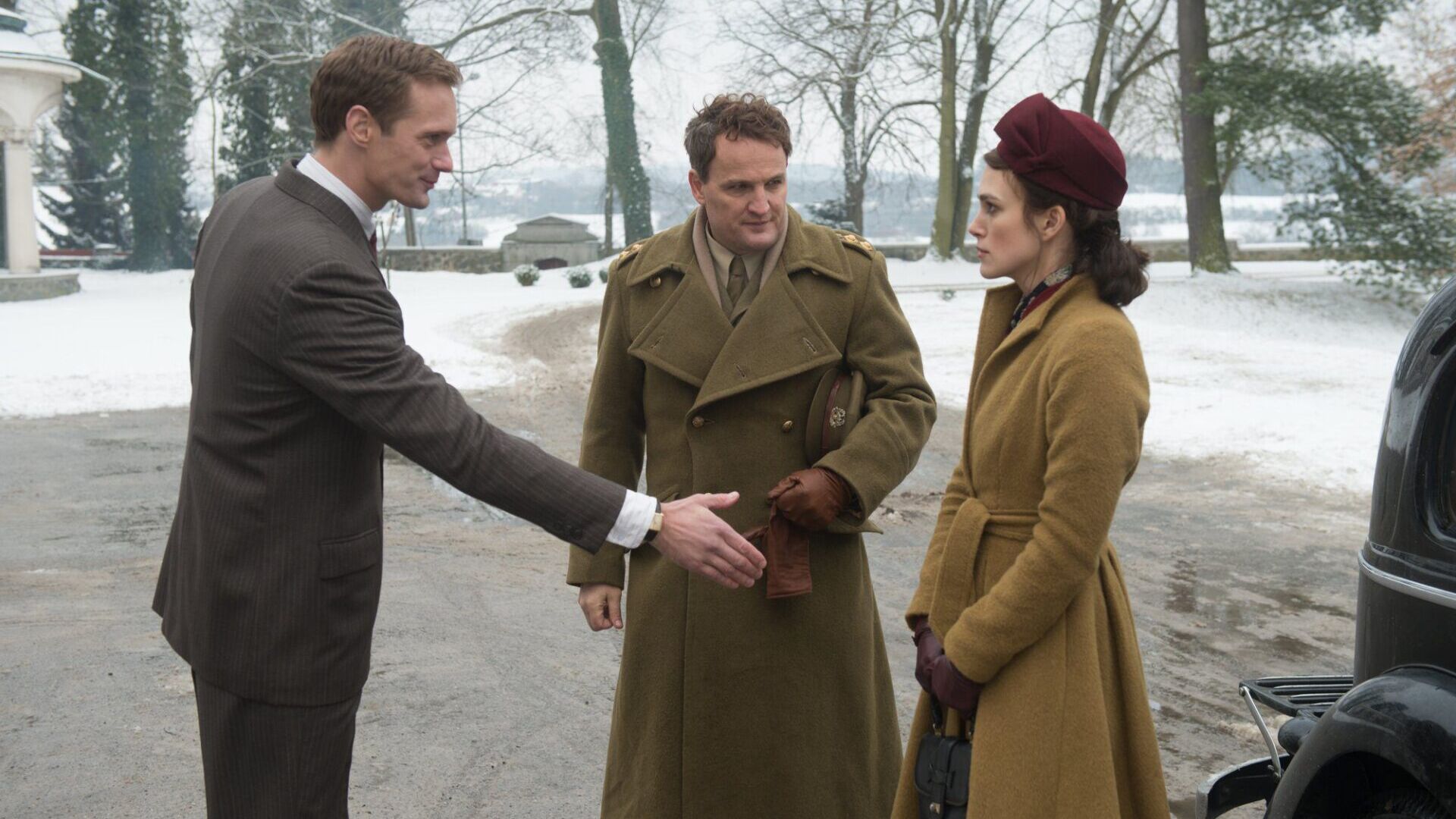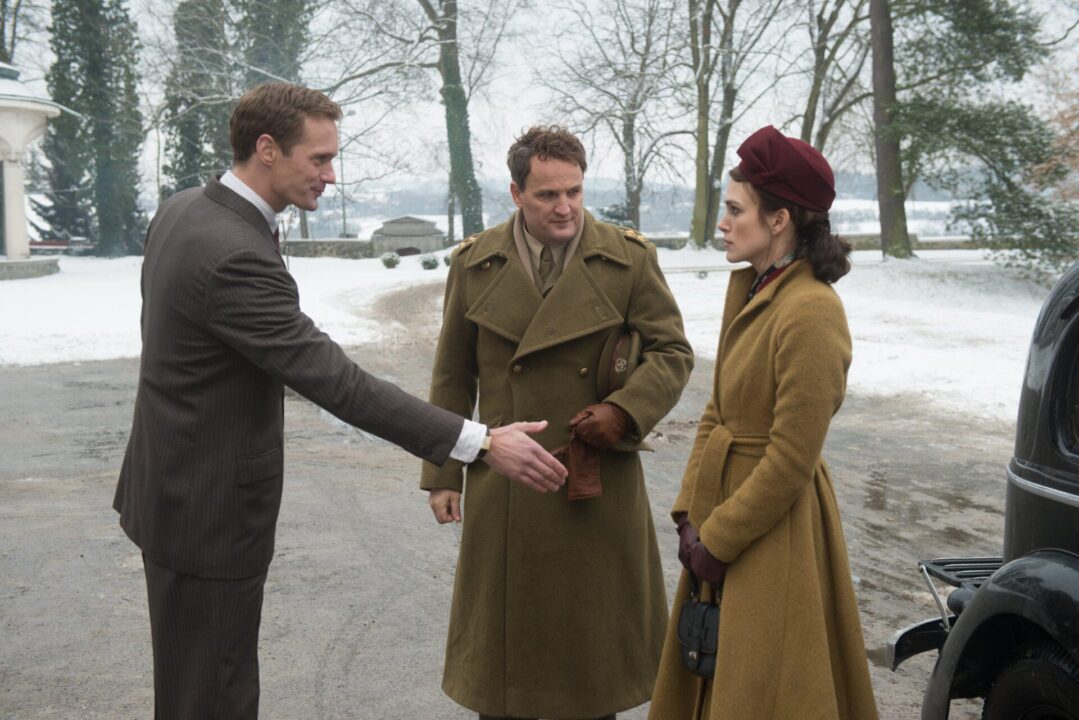A beautiful British woman falls in love with an equally handsome German man after an unwelcomed sexual advance wins her over in James Kent’s latest, The Aftermath. A broody Keira Knightley and rugged Alexander Skarsgård star in this turbulent love story about following your heart, despite the consequences of their actions and disregard for all of the people this taboo relationship would hurt along the way.
Two attractive people meet. And quickly fall in love.
Set in 1940s Germany, post-WWII, Rachael Morgan (Knightley) and her husband of more than 11 years, an over-worked army colonel named Lewis (Jason Clarke), relocate from London to Hamburg so he can assist with post-war recovery. The large house they acquire already has two tenants living in it, German-born architect Stefan Lubert (Skarsgård) and his daughter, Freda (Flora Thiemann). Faced with this unexpected situation, Lewis makes the generous but controversial decision to allow the small family to stay. Stefan and his daughter keep to their quarters in the house’s attic, hardly a livable space but apparently better than the alternative, while Lewis and his wife take over the rest of the house. The feelings of PTSD from the war, including the death of her young son and Lewis’s absence for weeks on end, has led Rachael to feel extremely isolated. Feelings of paranoia also have her assuming that every German is an untrustworthy Nazi, which Stefan is clearly not. So this living arrangement is less than ideal for her. But two attractive people who both suffer from feeling lost and misunderstood can’t suppress the sexual tension for long before one goes in for an unwarranted kiss, which is exactly what Stefan does.
The enemy becomes the lover
This seems to spark something in Rachael, and not feelings of #MeToo. She begins falling in love with “the enemy” behind her husband’s back, the pair even going as far as having sex on the dining room table. After sneaking around their respective families and friends, the couple creates a plan to run away together but matters of the heart aren’t always so simple, as the view from Rachael’s rose-tinted glasses starts dimming to reveal the reality of her situation and a future that she will be putting in jeopardy.
Detailed sex scenes overcompensate for a lack of real connection
There’s no way around it- The Aftermath is disappointing. With so much potential on screen and off, including the queen of conflict-ridden period pieces Keira Knightley and the always mesmerizing Alexander Skarsgård, this film misses the mark for a few reasons. It should be noted that the screenplay is based on the book of the same name written by Rhidian Brook, and like most adaptations, falls victim to rushed character development and story arcs. Rachael enters into this complicated relationship with strings attached as a married albeit unhappy wife, whereas Stefan’s wife has since passed. For this reason, her actions come across as selfish and make it hard to sympathize with. Knightley’s character left me feeling irritated, which is something I really didn’t want to feel towards a woman who is clearly suffering. This is the film’s biggest deterrent, but that’s not to say there aren’t “pleasurable” moments too. Without getting too graphic, the sex scenes are pretty out there (clearly, Kent was intent on showing audiences that Stefan really, really wants to please Rachael in more ways than one).
This wartime drama misses the mark
The Aftermath isn’t the home run those associated with the film were hoping for, but it should be acknowledged for its portrayal of a rarely seen side of WWII. Aesthetically speaking, Kent has done a wonderful job in showing the beauty amidst the rubble, if only this film could have done the same.
The Aftermath is rated R for sexual content/nudity, and violence including some disturbing images. 108 minutes. Opening this Friday at ArcLight Hollywood and The Landmark.
Morgan Rojas
Certified fresh. For disclosure purposes, Morgan currently runs PR at PRETTYBIRD and Ventureland.


